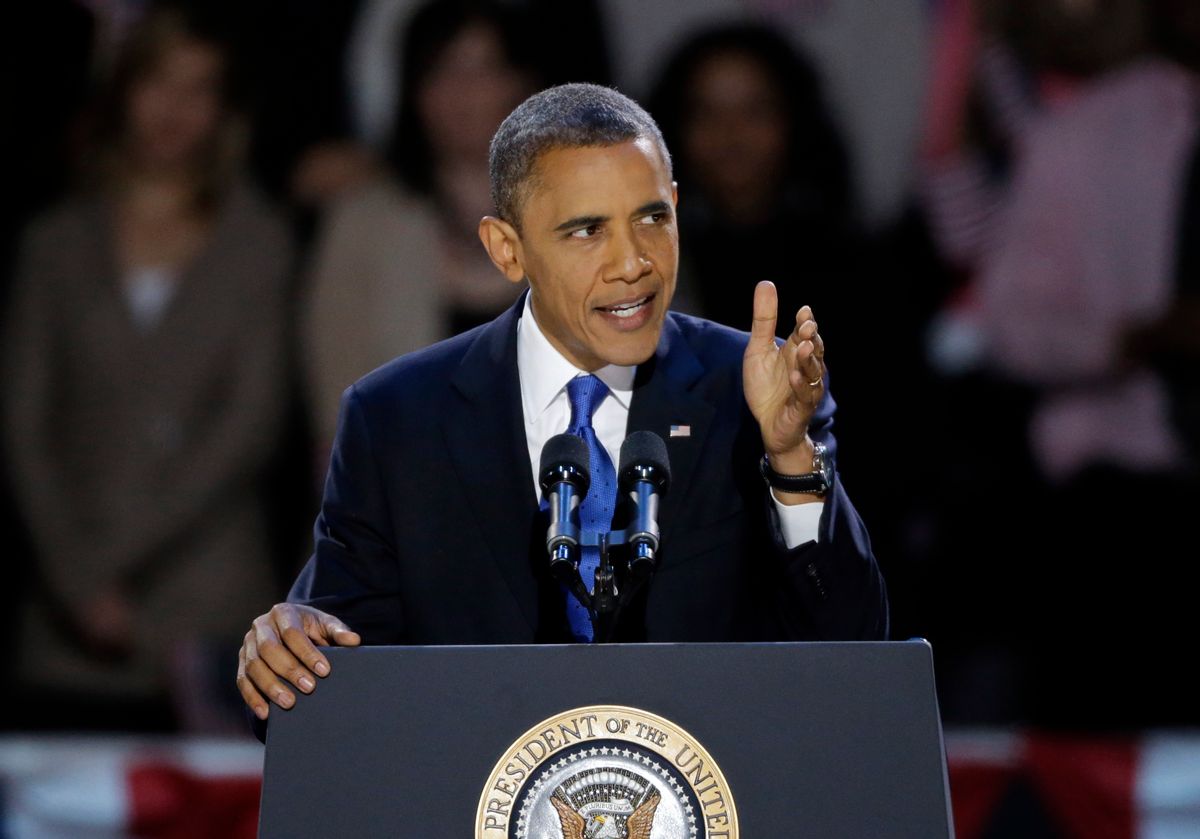 Tuesday night’s election results were a powerful endorsement of President Obama’s leadership. Though exit polls seem to indicate that foreign affairs played only a minor role in the decisions of most voters, the president has a remarkable opportunity to reassert American leadership in his second term by outlining and executing an ambitious global agenda.
Tuesday night’s election results were a powerful endorsement of President Obama’s leadership. Though exit polls seem to indicate that foreign affairs played only a minor role in the decisions of most voters, the president has a remarkable opportunity to reassert American leadership in his second term by outlining and executing an ambitious global agenda.
The last four years have been characterized by a largely safe and conservative foreign policy that was focused on cleaning up two wars that his administration inherited and addressing a global terrorism threat in need of containment. For the most part, the president has done an admirable job on both fronts and has exercised deft, competent, and thoughtful leadership across a range of foreign policy decisions. However, when given opportunities to make big, ambitious plays, he has consistently chosen to play it safe. The response to the Arab Awakenings could be much more powerful, with policy leadership and a political push equal to the historic opportunities in the region. The European monetary union remains in perpetual near-crisis, but the president has elected to play a supporting role. The U.S. trade agenda, most notably the Trans-Pacific Partnership, has made slow and steady progress, but has remained largely absent from the president’s broad narrative of promoting American values and strategic vision.
In order to accomplish this, the administration will need to fully come to terms with the “rise of the rest” and ascension of middle-income countries on the world’s stage. Strong American leadership in this new world will require reimagining the architecture of global governance. Some of this is underway with the increased reliance on the G20 rather than the G8. But more will have to be done to incorporate other nations substantively into the fabric of the IMF, World Bank, and Security Council. Additionally, we will need to craft new institutions that can coordinate collective action and truly make the United States an indispensable super partner in addition to being a super power. The U.S. is well positioned to lead this movement, but it must choose to seize that mantel and responsibility.
In President Obama’s second term, he should also double down on expanding the benefits of trade, openness, and economic growth in the developing world. There is perhaps nothing that can do more to solidify and secure long-term U.S. interests abroad than to help usher in a new world of opportunities for everyday people living in volatile and tumultuous regions. Families in Africa, Latin America, and the Middle East want what everyone wants: decent jobs, safe communities, educational opportunities, and a real path for their children to realize their full potential. Simon Rosenberg has observed, “FDR and his fellow progressives took on the challenges of their day and built the domestic programs and international institutions that ushered in an era of unrivaled prosperity and stability.” The challenge facing today’s progressives is no less important.
This administration has talked up many foreign policy accomplishments over the last four years, but the president has a real opportunity over the next four to leave a lasting legacy by reasserting a 21st century liberal internationalism. With the partisan congressional dynamics largely unchanged after the election, it is certainly possible that gridlock over domestic policy will create incentives for the president to focus more attention on a more ambitious foreign policy. I hope that he does.

Shares